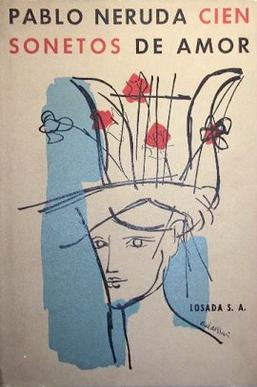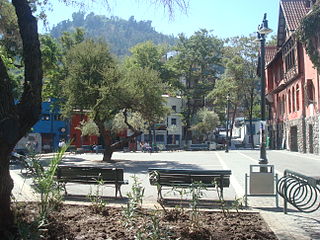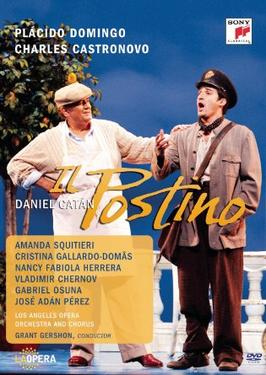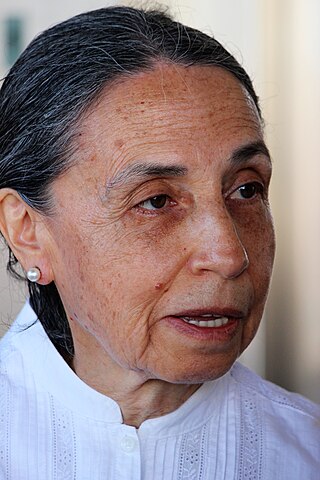
Il Postino: The Postman is a 1994 comedy-drama film co-written by and starring Massimo Troisi and directed by English filmmaker Michael Radford. Based on the 1985 novel Ardiente paciencia by Antonio Skármeta, itself adapted from a 1983 film written and directed by Skármeta, the film tells a fictional story in which the real life Chilean poet Pablo Neruda forms a friendship with a simple Procida postman (Troisi) who learns to love poetry. The cast includes Troisi, Philippe Noiret, and Maria Grazia Cucinotta. The screenplay was adapted by Radford, Troisi, Anna Pavignano, Furio Scarpelli, and Giacomo Scarpelli.
Matilde Urrutia Cerda was the third wife of Chilean poet Pablo Neruda, from 1966 until his death in 1973. They met in Santiago in 1946, when she was working as a physical therapist in Chile. She was the first woman in Latin America to work as a pediatric therapist. Urrutia was the inspiration behind Neruda's later love poems beginning with Los Versos del Capitan in 1951, which the poet withheld publication until 1961 to spare the feelings of his previous wife; as well as 100 Love Sonnets which includes a beautiful dedication to her.

Casa de Isla Negra was one of Pablo Neruda's three houses in Chile. It is located at Isla Negra, a coastal area of El Quisco commune, located about 45 km south of Valparaíso and 96 km west of Santiago. It was his favourite house and where he and his third wife, Matilde Urrutia, spent the majority of their time in Chile. Neruda, a lover of the sea and all things maritime, built the home to resemble a ship with low ceilings, creaking wood floors and narrow passageways. A passionate collector, every room has a different collection of bottles, ship figureheads, maps, ships in bottles, and an impressive array of shells, which are located in their own "Under the Sea" room.
Urrutia, meaning "distant, far away" in Basque is the name of a family that originated in Zumárraga in the province of Gipuzkoa, and then spread out throughout the Basque country, and eventually throughout the Americas and the Philippines.

Isla Negra is a coastal area in El Quisco commune in central Chile, some 45 km south of Valparaiso and 96 km west of Santiago.

Pablo Neruda (born Ricardo Eliécer Neftalí Reyes Basoalto; 12 July 1904 – 23 September 1973), was a Chilean poet-diplomat and politician who won the 1971 Nobel Prize in Literature. Neruda became known as a poet when he was 13 years old, and wrote in a variety of styles, including surrealist poems, historical epics, political manifestos, a prose autobiography, and passionate love poems such as the ones in his collection Twenty Love Poems and a Song of Despair (1924).

Cien sonetos de amor is a collection of sonnets written by the Chilean poet and Nobel Laureate Pablo Neruda originally published in Argentina in 1959. Dedicated to Matilde Urrutia, later his third wife, it is divided into the four stages of the day: morning, afternoon, evening, and night.

SS Winnipeg was a French steamer notable for arriving at Valparaíso, Chile, on 3 September 1939, with 2,200 Spanish immigrants aboard. The refugees were fleeing Spain after Franco's victory in the Spanish Civil War (1936–1939). The Chilean President Pedro Aguirre Cerda had named the poet Pablo Neruda Special Consul in Paris for Immigration, and he was charged with what he called "the noblest mission I have ever undertaken": shipping the Spanish refugees, who had been housed by the French government in internment camps, to Chile.

Raúl Zurita Canessa is a Chilean poet. He won the Chilean National Prize for Literature in 2000.

Teatro Caupolicán is a theatre and music venue located on the San Diego street in Santiago, Chile. It was opened in 1936. During its long history has hosted sporting, political, and cultural events. Currently is an important concert venue for popular Chilean and international artists, with a seating capacity of 4,500 and a total capacity of 5,400.

Plaza Camilo Mori is located in the commune of Providencia, in Santiago, Chile, between the streets of Constitución and Antonia López de Bello, in the heart of Barrio Bellavista. One block away is Pio Nono street, which leads to the Chilean National Zoo and San Cristóbal Hill. Plaza Camilo Mori is also an important meeting place for bohemian culture in Santiago, where important places such as the house-museum of Pablo Neruda, the Centro Mori, pubs and restaurants spreading from the plaza south along Constitución street and above all, a great number of workshops, theatres and cultural centers can be found. Nemesio Antúnez, Pablo Neruda, Mario Baeza and Camilo Mori are examples of how artists have given their names to this part of Barrio Bellavista. Access to the square is via station Baquedano of the Santiago Metro.

The Coast of Poets is a cultural space in the Valparaíso Region of Chile, named for four world-renowned Chilean poets.

Los versos del capitán is a book by the Chilean poet Pablo Neruda, winner of the Nobel Prize in Literature in 1971. It was published for the first time anonymously in Italy in 1952 by his friend Paolo Ricci. The book with his own name in it was first published in Chile, in 1963, with a note written by Neruda explaining why he used anonymity. It is considered that "Los versos del capitan" were dedicated to Neruda's lover Matilde Urrutia, whom he married a few years later.

Il Postino is an opera in three acts by Daniel Catán with a Spanish libretto by the composer. Based on the novel Ardiente paciencia by Antonio Skármeta and the film Il Postino by Michael Radford, the work contains elements of drama and comedy, integrating themes of love and friendship along with political and spiritual conflict. The opera premiered at the Dorothy Chandler Pavilion by Los Angeles Opera on 23 September 2010.
Margarita Aguirre was a Chilean writer and critic. She was the friend and first biographer of Nobel-winning poet Pablo Neruda.

The Pablo Neruda Order of Artistic and Cultural Merit was created in 2004 by the National Council of Culture and the Arts of the government of Chile, as part of the commemoration of the 100th anniversary of the birth of Chilean poet Pablo Neruda.
The Pablo Neruda Award is a literary award granted annually by the Pablo Neruda Foundation since 1987. It recognizes an author under 40 who is actively writing. It consists of a diploma, a medal, and US$6,000, which are presented at La Chascona house museum in Santiago.
Erick Swen Pohlhammer Boccardo was a Chilean poet of the Generation of the 80s, a self-described "media figure, traveler, compulsive reader, Zen Buddhist, and expert in both academic and pop culture."

Elvira Hernández is a Chilean poet, essayist, and literary critic.

The 1971 Nobel Prize in Literature was awarded to the Chilean politician and poet Pablo Neruda (1904–1973) "for a poetry that with the action of an elemental force brings alive a continent's destiny and dreams." Neruda became the second Chilean Nobel laureate in Literature after Gabriela Mistral in 1945.














